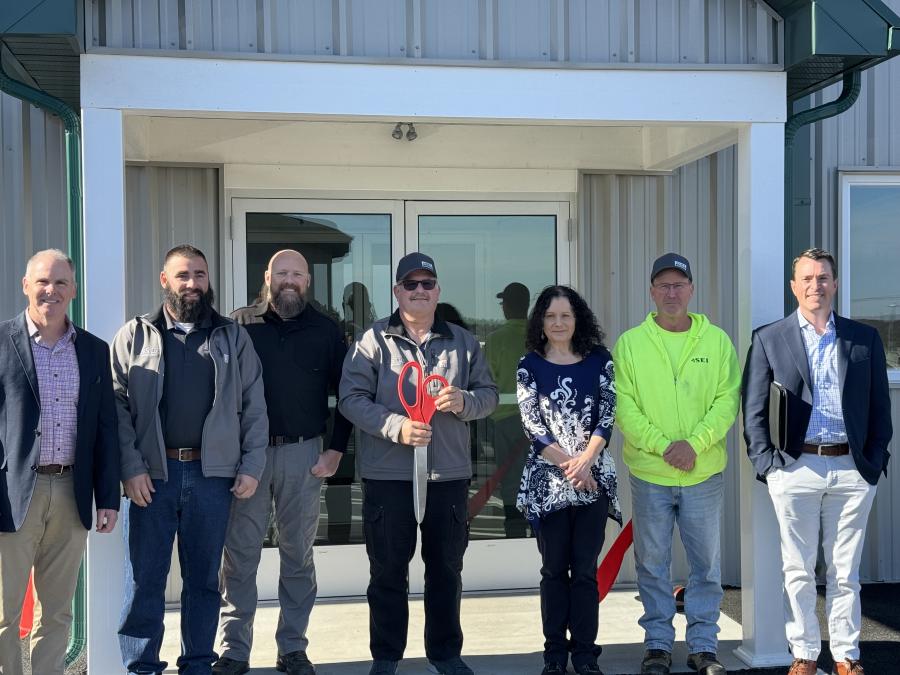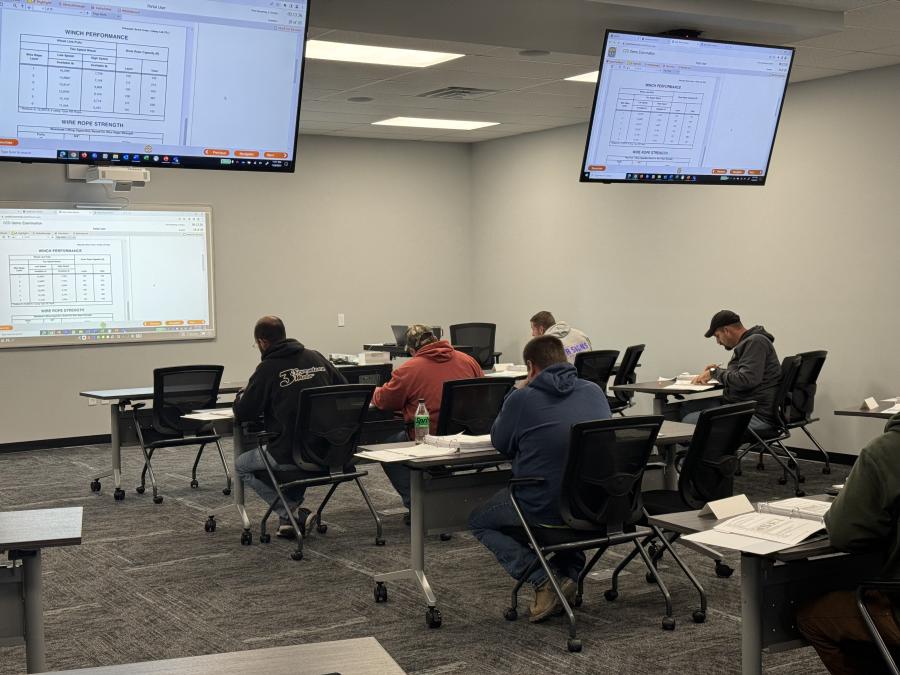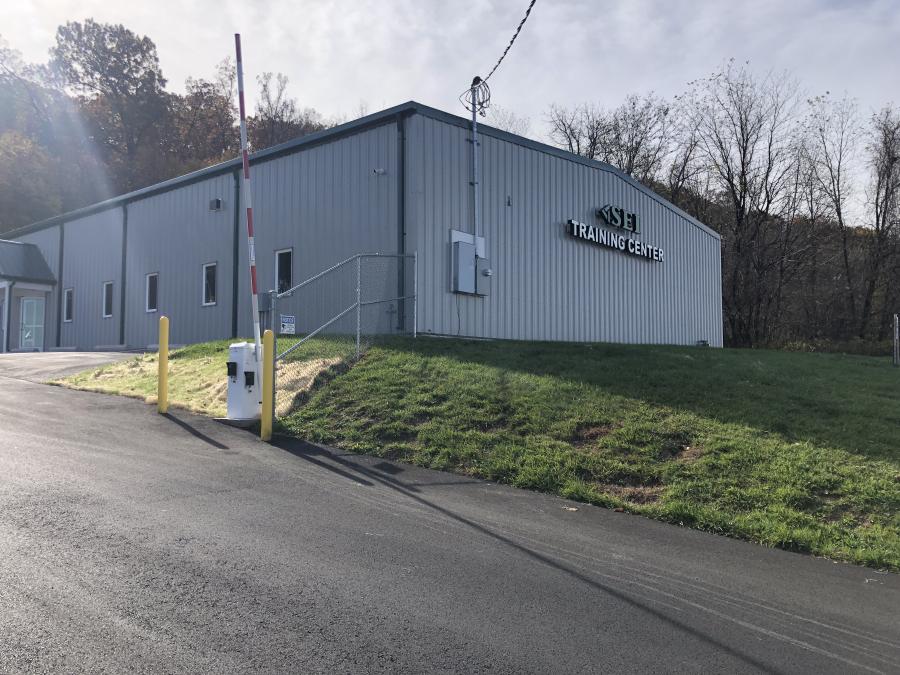
Mon December 4, 2023
CEG
Stephenson Equipment Inc. (SEI), based in Harrisburg, Pa., recently opened a new training center designed to help construction personnel in the state become proficient and certified in operating a variety of different construction cranes and rigging.
The company is already well known for the service it offers customers in the Pennsylvania-New York area and for its large inventory of heavy equipment, including construction machinery and cranes. It has six locations across the Keystone State, as well as two others in Albany, N.Y., and Syracuse, N.Y.
But it also has offered crane training and certification classes at its main Harrisburg branch for the past 30 years.
Contracting companies have sent their employees to SEI to learn how to run many different types of cranes efficiently and safely; or, if it is more convenient for the contractor, the dealership will hold offsite classes at the builder's location, according to Ray Feidt, SEI's corporate inspection training manager and an almost 40-year employee of the company.
In addition, various building trade unions that use cranes often utilize SEI to get their operators proficient and certified, he said, including those associations representing steel and electrical workers.
SEI's training program was designed by experts in the field, including licensed crane operators, safety supervisors, crane manufacturers and trainers who understand the unique challenges operators face daily on the job.
The objective of crane operator training and certification is to prepare operators for anything they may encounter while using a crane, according to SEI.
Feidt and his team of five full-time professional trainers hold their sessions on behalf of the National Commission for the Certification of Crane Operators (NCCCO), also known as CCO, a non-profit organization responsible for monitoring written and practical certification examinations for mobile, tower, overhead and articulating (loader or knuckle-boom) crane operators.

SEI's new 12,000-sq.-ft. CCO training facility began welcoming students the first full week of November, a fact that, in part, represents the tremendous growth and popularity of the company's crane training program over the past 25 years, said company President Charlie Walsh.
"We train over 1,000 operators each year from our main Harrisburg branch and, as a result, the available space here had become a constraint," he said in explaining why SEI built a more expansive teaching facility. "As our business has grown and the CCO program has expanded, a lot of people began coming through the doors on a weekly and monthly basis. We just got to the point where we needed to take some stress off by moving CCO up the hill from our headquarters location, and that has proven to be a nice, natural fit."
To make it a reality, Walsh and Feidt oversaw a year-long project to remodel an older building to house the new center, featuring several classrooms not only for crane training and certification, but for people to learn how to become skilled and certified riggers as well.
"We are excited with the result," he said, "and I think our students really love the final building and the program's academic offerings."
At the same time, SEI also renovated its main dealership at 7201 Paxton St. in Harrisburg to include more space for parts, service and aftermarket support to better serve its loyal customer base.
The driving force behind the new training facility has been Feidt, who was elevated to his current position 20 years ago from field service and is in charge of SEI's CCO training program.
"We have been involved with the CCO program since the late 1990s," he said. "All the training done meets the requirements of the NCCCO. They are federally- or state-mandated for certification for crane operators."
SEI helps men and women become certified crane operators by:
- scheduling the required practical exam;
- providing three days of onsite or remote training for the written exam;
- coordinating administration of the exam on the fourth day; and
- administering all the paperwork required for crane operator certification.
Full crane operator certification requires applicants to take all three parts of the examination within one year, including a written test for core crane operation, a second test for one of three specialty crane types and a practical exam.
Operator evaluation and certification, Feidt said, is required by the federal Occupational Safety and Health Administration (OSHA) before one can get behind the controls of a crane.
"Certification means that an operator has a general overview of cranes, and everything related to running them," he said. "Evaluating an operator on a specific machine is done to see if he or she understands its control functionality, how to set up its computer and knows how the crane works."
Although crane operator certification is not model specific, SEI trains and certifies prospective crane operators to work a whole range of heavy lift products.
"Our mobile crane training could be anything from telescoping to lattice boom machines," Feidt said. "Plus, we hold classes for running articulating boom cranes — typically called knuckle booms — and tower cranes every month or so. We also train people in operating overhead cranes, although not as often as we do the others."
Because of the popularity of its CCO program, and SEI's new expanded facility, Feidt said that the company is looking at holding between 60-70 classes per year, with the number likely to vary from week to week.
The length of time to train and become certified on a particular crane also varies, depending on the type of machine, he said.
"Because a mobile crane is more complex than other machines, it requires three days of classroom training, which gives the candidate more technical knowledge on operating a crane," according to Feidt. "Obviously, you don't learn to run a crane in a classroom, but you learn the technical things and that is critical. From there, we normally do the certification exams the following day.
"After that, we teach students how to physically operate a crane — the hands-on learning — which we do adjacent to our new training facility here," he added. "I have a trainer that does that full time at a hands-on pad on the SEI property. Following those two components, students take their technical knowledge exams, their practical exams, and, if they pass, they become a certified mobile crane operator."
For a candidate who has either minimal or no experience behind the controls of a mobile crane, Feidt said, the machine's training program will last at least two weeks.

"When it comes to tower crane training, we schedule one, and sometimes two, days of class work, followed by the hands-on component for that machine," he added. "That is done in the same area as the mobile crane hands-on work."
Articulating and overhead crane training also includes a single day of classroom work, followed by practical exams, and hands-on learning.
To manage such a large number of candidate crane operators, Feidt has gathered a staff that has proven itself adept at taking on different roles, beginning with Chris Traino, whom he considers to be his "right arm." Besides working as his assistant, she coordinates and organizes the company's CCO test sites, he said.
"I also have Charles Caudill, Daniel Feidt and Anthony Mendez," Feidt added. "They have each become invaluable as classroom trainers, practical proctors, computer-based proctors and test site coordinators. Also, David Bucher is my full-time hands-on trainer teaching candidates to operate a crane. He doesn't work within our classrooms but is probably our top practical exam proctor."
With more space now available at SEI's training center, the company also wants to bolster its role in CCO's rigging training and certification programs, after many years of having been involved with them.
Certified riggers are specialists in handling and moving loads on a project site. According to the NCCCO website, their "level of certification depends upon the individual's training, knowledge, skill base, and ability to perform functions related to the selection, inspection, and proper use of rigging equipment."
With that in mind, Feidt said SEI wants to develop a master rigging program, which it will offer to credential. The company already sponsors CCO's Rigger Level I and Rigger Level II certifications and hopes to expand on them.
"We will use the two rooms that we have in the back of our training facility here to do that," he said. "Before, we had been using a partitioned room in our warehouse. We could only do so much in that space, but this new building just provides massive opportunities to expand our rigging program."
The transformation of what was SEI's old Service Supply building into a sleek, modern and technologically advanced crane and rigging education center began earlier this year. It includes a primary training room as well as two smaller spaces that are similarly equipped.
"They are much the same except that our big room features a pair of monitors two-thirds of the way back so that every student in the classroom can better see the display," Feidt said while giving a tour of the facility.
"Most of the training we do here revolves around CCO certification and for that, there are two platforms available," he added. "We can proctor exams in the big room, while an additional eight private rooms set up with computers give operator candidates the opportunity to do online proctor testing."
When Feidt and Walsh look back at the how far SEI's crane training and certification efforts have advanced, topped off by their new CCO training facility in Harrisburg, they are justifiably proud of the accomplishment.
"When I took this position in January 2003, I started by myself," Feidt said. "But we were involved with CCO prior to that. Back then, we did maybe two testing classes a year. Now, with this facility, I find it hard to believe how cool it is. Never in a million years would I have dreamt of this."
Walsh also noted that having the hands-on training pad just up the hill from where the classrooms are now located "is a perfect fit for us."
Additionally, the feedback they have each received from the people taking the CCO training courses at SEI has been extremely positive, Feidt said.
"These guys just love this place. They have told us how nice and comfortable it is with all the room," he said. "We tried to plan it carefully with more space in the classrooms so they would not be so jammed in."
Walsh added that the facility's new audio-visual (AV) technology also has been a big hit with trainees.
"They like all the IT and AV components we have built and incorporated into this facility, which allows them to use interactive screens. It was our intent to design the CCO center so that the latest and greatest technology was an integral part of helping them become trained and certified on operating cranes at the job site," he said. CQ
 Cranes Equipment
Cranes Equipment Articles
Articles Email Updates
Email Updates Sell Your Machines
Sell Your Machines

 Cranes Equipment
Cranes Equipment Cranes Dealers
Cranes Dealers Cranes Articles
Cranes Articles Email Updates
Email Updates Sell Your Machines
Sell Your Machines